What’s your favorite thing about the Dalai Lama?
His cute little smile? His snappy outfits? His unrelenting efforts in the areas of human rights and world peace?
Don’t get me wrong, I’m all for world peace. But I just discovered something about the Dalai Lama that’s more amazing than that.
Check it out:
Back when I was in Holmes Institute, I took a class in Ethics. One of the books we read was Ethics for the New Milliennium, by – you guessed it – His Holiness the Dalai Lama.
In the book, His Holiness leads us through a wide array of ethical issues, including the individual’s quest for happiness as it intersects with the needs and desires of others.
And while that was all well and good, what really got my attention was a passage early in the book.
His Holiness recounts one of his early trips to the West, when he was staying with an extremely wealthy family. He noticed how relaxed and confident they were. He watched as servants catered to their every need.
Perhaps the rich really are happier than other people, he thought. Perhaps money really can buy happiness.
That is, until he saw their medicine cabinet full of sleeping pills and tranquilizers. It was then he realized he had been deceived by outward appearances.
Since that day, His Holiness has discovered that people living in materially-developed countries are often less happy than those who live in more modest circumstances.
When we put material wealth above our basic connection with others, suffering is the result.
This story stuck in my head. It reminded me of a Gallup poll that rated the world’s happiest countries. The places that scored the highest were not bastions of material wealth. They were places – like El Salvador and Venezuela – that put a high premium on family and community.
I was impressed by the way the Dalai Lama took a simple observation and expanded it into a powerful prescription for happiness and goodwill.
And then it hit me. Months after I read the story, I realized I had neglected to notice an important detail:
The Dalai Lama peeked into their medicine cabinet!
In his retelling of the story, he notes that the cabinet was “slightly open.” We all know that one, right?
The door was slightly ajar, so I peeked into the room. The cookie jar was slightly open, so I helped myself to a few cookies.
In other words, the Dalai Lama committed a completely human act. Driven by curiosity, he checked out the prescription drugs of the people he was staying with.
His Holiness also admits, in the same book, that although vegetarianism is a healthy and valuable practice, he is not a vegetarian.
These are more than simple statements of human imperfection. They are powerful reminders of what it means to be on a spiritual path.
The Dalai Lama is human. He’s a human being with foibles and imperfections. Not only that, he freely admits it.
His Holiness brings gentleness and compassion to everything he does, including those things that others might deem “unacceptable.”
I think I was initially unable to recognize his slightly naughty behavior because of his spiritual stature. Like, someone really spiritual like the Dalai Lama is incapable of anything but 100% enlightened activity. Right?
But that’s not what the spiritual path is about. It’s about love. It’s about bringing love to everyone and everything.
Everyone and everything.
Think of a part of yourself you don’t like. Bring love to that part.
Think of someone you don’t like. Bring love to them.
Think of a group of people you don’t like. Bring love to them.
If it’s difficult, ask the Divine for help. And if you can’t bring love at first, ask for the willingness to bring a little love in the future. Or the willingness to be willing.
Being human. Doing our best. Bringing as much love as we can to every situation and circumstance.
If the Dalai Lama can do it, so can we.
How do you love your human self? How do you forgive yourself when you stray?

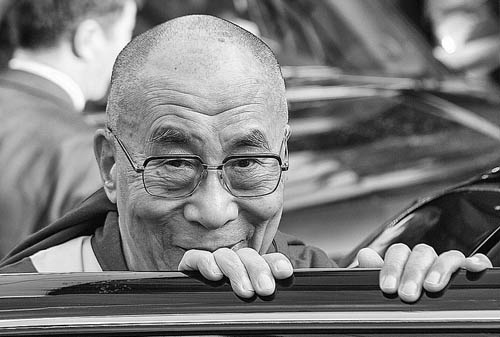
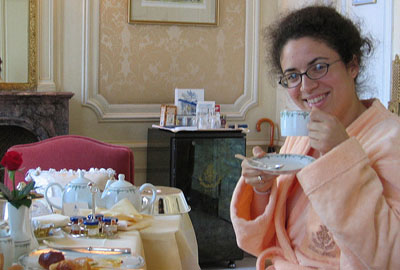
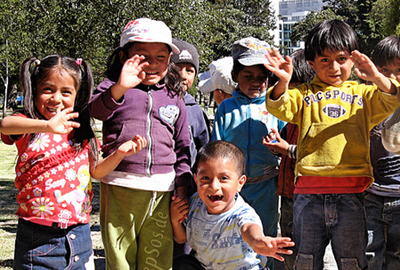

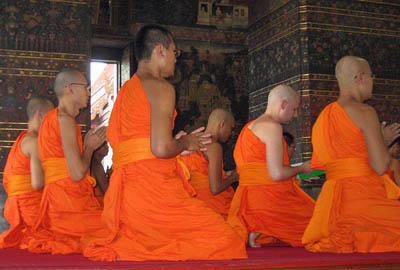
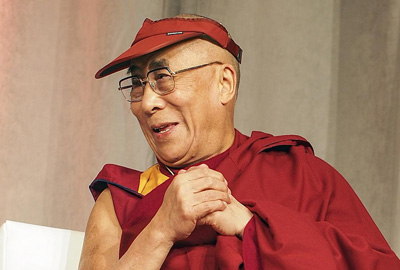
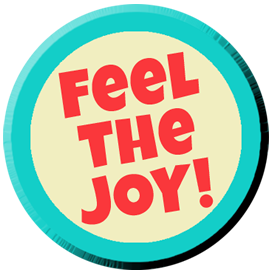
Great blog!! Loved it — and have you read “The Dalai Lama’s Cat”? Great little book too.
Hi Angelica,
I have not heard about The Dalai Lama’s Cat. I will have to check it out. Thank you for the heads up! 🙂
XOZ
I just love the story. It certainly got me off to a good start today. I feel as if I will be smiling all day because I learned that the Dali Lama peeks into medicine cabinets 🙂 More than that – he and I are the same; human and on a spiritual path. He is a little ahead of the game, but that’s all right because some day, some life, I will catch up.
Hi Simone,
Great to see you here, as always. I’m glad you’re still smiling. 🙂
XOZ
Z, I read that book too and I completely missed that. Why that little sneaky Holiness! I can just imagine confronting him.
“Your Holiness, did you look in my medicine cabinet?!!!”
“um, yes, and it taught me a powerful spiritual lesson”
“oh really, and what was that? we’re all human? I don’t think so. I’m going to tell Z and she’s going to write about this on her blog! You’re using my medicine cabinet to illustrate what’s wrong with rich people. But I’m not ‘rich people,’ I’m just me! Jesus, I need a Xanax.”
Hi Sara,
I know, right?! He’s a tricky guy, His Holiness. He said it point blank, and it still took me months to hear it. I wonder if that’s a trait that comes with royalty. Some sort of spidey sense. Probably. And I appreciate your role play. Just to be clear, you’re not asking Jesus for a Xanax at the end, are you? Because I hear he goes for more holistic methods.
XOZ
It is my understanding that Jesus hears all prayers and provides what I need. I will leave it up to HIM whether I need a Xanax. I suspect he’s fine with it.
I remember Zippy the Pinhead’s favorite pick-me-up was Jack ‘n’ Zack a mixture of Jack Daniels and Prozac. I wonder what His Holiness would think of that? (probably loves Zippy)
Clearly you have a strong personal relationship with both Jesus and Xanax. Far be it from me to interfere.
As for the Jack ‘n’ Zack, I am not familiar with this particular concoction. But I’m sure His Holiness would totally dig it.
His Holiness was perhaps channeling cosmic curiosity…..
Hi Nancy,
Nice to see you here!
Cosmic Curiosity, I like it. It’s related to Cosmic Creativity, no doubt. 🙂
XOZ
Another thing about the Dalai Lama–everytime people start writing about how wonderful he is and how great it is to see him, I realize that I need to heal up resentment over something. A couple of years ago my father-in-law was chosen to moderate a panel on law and tibetan buddhism featuring the Dalai Lama when he chose to visit SUNY Buffalo Law school where my father-in-law taught. The summer before his visit, my F.I.T., knowing next to nothing about Buddhism, turned to me for what to read and I ended up recommending a bunch of books, kind of reading them with my F.I.T. and spending a few hours with him and some of his colleagues spit balling about questions to throw at His Holiness. My F.I.T. invited me to come to the session which was only 20 people with with H.H. and there was to be an even smaller dinner with him at my F.I.T.’s house.
Here’s the kicker: I didn’t go! the reason: we live in California and my husband pronounced it “ridiculous” to travel to Buffalo for this opportunity. And I listened to him because it was his Dad inviting me and if my husband felt it was ridiculous, how could I go? Now, years later, I wish I trusted my gut that this was an important opportunity and that I just needed to do it regardless of what my husband thought (we could afford the airfare, that wasn’t the issue).
Now, though, it’s done. As my pastor (and probably the D.L.) would say, “did it have to be this way? evidently.” It’s time to let it go…
Oh yes, it is hard to read this story without empathizing with your regret! And yet, as you say, This is the way it went. I can ever see the Dalai Lama, smiling at you, reminding you that this is exactly how it was to be. And then, when you weren’t looking, he’d take a peek in your medicine cabinet. 😉
All that wisdom! And he pulls off being bald so well, too. The part of my very human self that has required some extra love and acceptance over the years is my slightly dyslexically-wired brain. When I work my way through the occasional obstacles it creates, I find it’s a wonderful source of creativity and humor. Thanks for the moment to ponder.
Hi Jo,
I like that you point out that working through our supposed “faults” and finding love and acceptance for them can bring us to some really cool places. Anytime I can get to creativity and humor, that’s a good thing. Thank you for this insight. 🙂
XOZ
When he spoke at Santa Barbara people witnessed him eating a chicken sandwich so yep, he eats animal flesh. Also one of the countries with the highest happiness rating is Bhutan which by no means is a rich country.
Hi Linda,
Great to see you here! I heard that he tried to be vegetarian, but he got really sick, so he went back to a diet that included meat. Like I said, I really appreciate his honesty. Especially coming from someone who has done so much good work in the world.
Thanks for your comment! 🙂
XOZ
Love it! I remember reading that even the Dalai Lama gets pissed off sometimes and that made me feel better about some anger issues I myself deal with. It struck me that to be non-judgmental and tolerant, that we need to be non-judgmental and tolerant first towards ourselves. The only “law” that really matters is “Do No Harm.”
Hi Harusami,
Thanks for your comment! Great to see you here.
Yes, I have also heard the Dalai Lama talk about his issues with anger and impatience. I’m always grateful when those I respect can be honest about their human qualities. It helps me to be more gentle and loving toward myself. Like you say, “Do No Harm” is a powerful teaching, and it applies to both others and ourselves.
Stop by again any time!
XOZ
When I think of the Dalai Lama, or rather picture him that first picture comes to mind. I see him like a Grampa seeking peeks at the little kids and getting them to laugh. He seems totally human and totally giving. I was so sad to find that the tickets to see him here in Eugene were sold out in a matter of minutes. I was really wanting to see him in person. Wonder how to invite him to the Center for Spiritual Growth here in Eugene? hummm, gotta manifest that one! Thanks for sharing Z
Hi Sandi,
I’ve never seen him in person – that would be fun. I love your image of the Grampa and the little kids. To me, he seems like both Grampa and little kid. Very sweet and playful. Thanks for sharing! 🙂
XOZ
I love the playful side of the Dalai Lama. I think that, his title aside, he knows no one is more holy than anyone else. We’re all parcels of Source Energy come into physical expression for the fun and adventure of it all.
We’re not really here for improvement. We’re already Source Energy, for heaven’s sake.
And enlightenment isn’t something we achieve and we’ve arrived. We’re enlightened every time we think light, good-feeling thoughts and feel joy. I think His Human-ness knows that. And that’s why his eyes sparkle and crowds sell out in a matter of minutes to see him.
Hi Karen,
I agree with you – the Dalai Lama’s playful side is really a delight. Without words, he is demonstrating the joy of life. It’s much more powerful than anything he could say. And what a great example for all of us – that we can all live life with such pleasure and glee. It was fun to pick photos for this post – the flickr site was full of all sorts of wonderful photos of the Dalai Lama and his playful smile. Beautiful! 🙂
XOZ
Loved the info on the Dalai Lama, I have always loved him, his ease, calmness, loving ways. He is his holiness but he is very much a human being very special man but still a human being. I believe for me loving is the number one thing and all that goes with that. Thanks. Z
Hi Norma,
I like how you point out that loving is the number one thing. And the Dalai Lama really seems to exemplify that. He really is a beautiful role model. Thanks for your comment! 🙂
XOZ
Jack refers to Jack Daniels (a whiskey) and Zack to a psychoactive drug.
Think of a part of yourself you don’t like. Bring love to that part. Oh yes and what bettet way than to notice and appreciate what I DO love and let what I don’t love kind of dissapears under the weight of truth.
Oh, and if I’m really needing help, I also ask, “Now what part of me does The Divine not like?”
Hi Whitefire,
What a great question to ask. I love it. Learning to see myself through the eyes of Source is one of the most amazing things I’ve ever done. And it just gets better and better every day.
Thank you for your comment! 🙂
XOZ